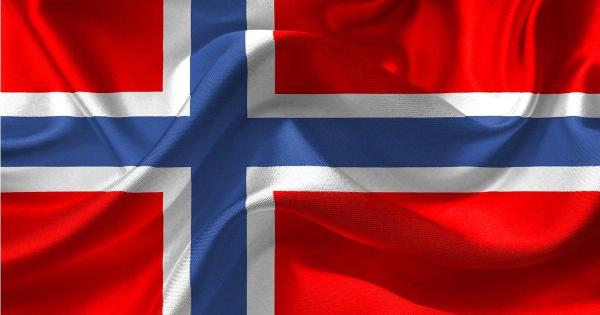
Norway to adopt Mobility Package rules from November 1
Although Norway is not an EU member and is not obliged to comply with these regulations, the country’s Ministry of Transport has concluded that the EU Mobility Package will help to make the road transport sector a better place to work and do business. This is why the ministry has decided to adopt new regulations on driving and rest periods for drivers, the use of tachographs in vehicles and the rules regarding access to the occupation of a road transport operator.
The new regulations are part of the mobility package’s so-called social part, which was included in the EEA agreement on 18 March.
The most important regulations that take effect on November 1:
⏺ an international transport licence is required to operate vans over 2.5 tonnes. Hauliers must also meet other requirements such as headquarters located in the EEA area, good reputation, sufficient financial standing and professional competence.
⏺ the cabotage rules will also apply to international transport by vans.
⏺ vehicles in international transport are required to return to their operational centre in the country of origin every 8 weeks.
⏺ transport companies have to make arrangements for drivers to be able to take at least one regular weekly rest at home during each four-week period,
⏺ drivers are not allowed to take their weekly rest in the vehicle
⏺ renumeration for drivers cannot depend on how quickly the goods are delivered.
⏺ The cooling-off period of 4 days after the last completed cabotage operation during which foreign vehicles are not allowed to perform cabotage operations in Norway.
Changes effective from 2026:
⏺ the rules on driving and rest times will apply to vans with a MAM of 2.5 to 3.5 tons used in international transport
⏺ vans with a MAM of 2.5 to 3.5 tons used in international transport will have to be equipped with a tachograph

HGV restrictions in Catalonia
Owing to forecasts of significant increases in traffic volume on the 21st and 23rd of October, an additional restriction will be introduced on some road and motorway sections for vehicles or combinations of vehicles with a maximum authorised mass of more than 7.5 tons, which are required to use the right lane and must not overtake other vehicles and drive faster than 80 km/h.
On Friday, October 21, between 3:00 PM and 9:00 PM, the restrictions will apply on the following road sections:
➖ the AP-7 motorway, between KP 126, exit 12B at La Roca del Vallés, Granollers and the junction with the C-60 in La Roca del Vallés, and KP 172, exit 25 at Martorell and the junction with the A-2 in the Martorell commune;
➖ the AP-7 motorway in the territory of Terres de l’Ebre, where there are only two lanes, between KP 257, exit 35 at Vila-seca, Salou, Reus S. and Port Aventura, in the municipality of Vila-seca, and KP 344,8 the border between Tarragona and Castellón, in the municipality of Ulldecona.
On Sunday, October 23, between 3:00 PM and 10:00 PM, the restrictions will apply on the following road sections:
➖ the northbound AP-7 motorway, between KP 111.1, exit 11 at Sant Celoni and Montseny in the commune of Sant Celoni, and KP 133.8, exit 13 at Granollers, Montornès del Vallès and Vilanova del Vallés, in the municipality of Montornès del Vallès.

October 3 – can I drive along state roads?
On the 3rd of October, Germany celebrates the Day of German Unity, which is a national holiday.
Can HGVs be driven on this day, for example on state roads (Landesstraßen)?
❗ Unfortunately, on this day, an HGV driving ban for vehicles with a GVW of over 7.5t applies in the entire German road network between 00:00 AM and 10:00 PM.
In addition, owing to the public holiday in Germany, Austria and Italy have also introduced HGV driving bans to avoid congestion at the border.
⛔ Austria: the ban for vehicles with a GVW of more than 7.5t is in effect from 00:00 AM and 10:00 PM the on Inntalautobahn (A12) and Brennerautobahn (A13) in the direction of Germany.
⛔ Italy: the ban for vehicles with a GVW of over 7.5t is in effect from 00:00 AM and 10:00 PM on the A22 section from Sterzing/Vipiteno to the Austrian border for northbound trasports, if their destination is located in Germany or must be reached via Germany.
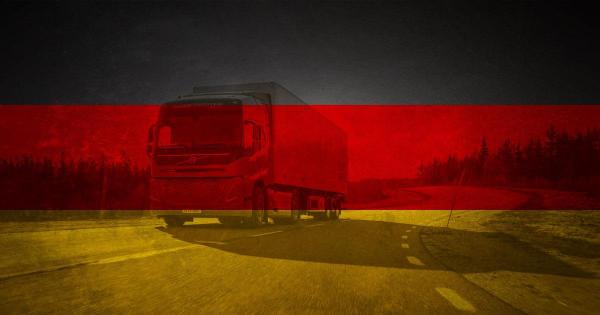
Germany: closure of the A7 near Hamburg
From 10:00 PM on Thursday, November 17, to 5:00 AM on Monday, November 21, the A7 between the Hamburg-Volkspark and Hamburg-Waltershof junctions will be completely closed to traffic.
The port of Hamburg can be reached from the south until 10:00 PM on Friday, November 18.
HGVs (with abnormal loads) have to take a big detour to avoid the A7 as traffic will be closed in both directions. Difficulties are also to be expected on diversions routes.
The closure is due to the eight-lane expansion of the A7.
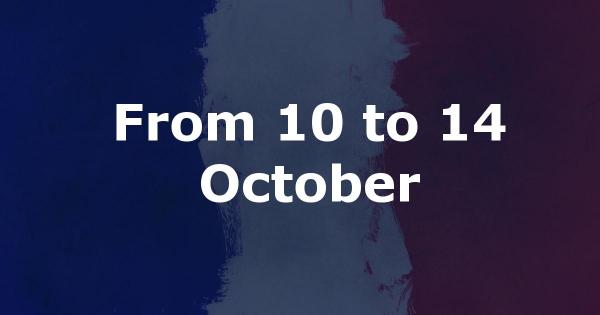
Night closure of the Mont Blanc tunnel
Maintenance work on the French tunnel is starting and it has been decided to introduce changes to night-time traffic.
To allow the services to operate, traffic in the Mont Blanc tunnel will be completely interrupted at night:
– from Monday, 10 October, to Tuesday, 11 October, from 10pm to 6am,
– from Tuesday 11 October, to Wednesday 12 October from 7.30pm to 6am,
– from Wednesday, October 12, to Thursday, October 13, from 7.30 p.m. to 6 a.m,
– Thursday 13 October, to Friday 14 October, from 7.30pm to 6am.
Source: Febetra
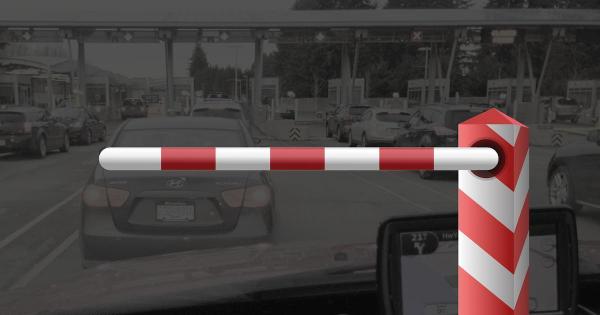
Czech authorities introduce controls on the border with Slovakia
The goal is to prevent illegal migration and activities of organized groups of smugglers.
Given the growing scale of illegal transit migration to the Czech Republic, the country’s government has decided to reintroduce temporary controls on the border with Slovakia from September 29 to October 8, 2022. Border controls will be restored along the entire length of the state border with Slovakia at 27 former border crossings, including 17 road, 7 rail and 3 river border crossings.
The government has reintroduced border controls following recent efforts by the police to prevent a growing number of people from illegally crossing the border with Slovakia.
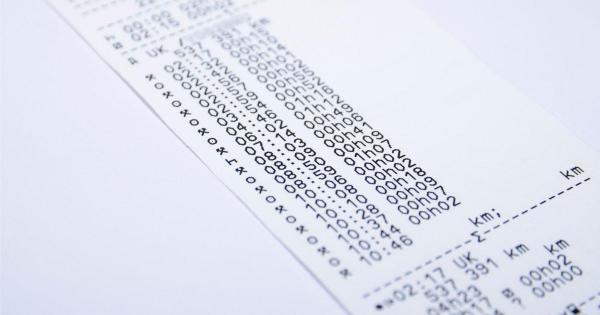
France – a temporary derogation from drivers‘ hours
Following strikes at refineries run by TotalEnergies and ExxonMobil oil companies, several refineries have been closed and the operation of some fuel storage facilities has been severely disrupted.
In this situation, road hauliers are obliged to transport available fuel supplies to distribution points from places of import or storage located further away than usual, which increases distances and journey times. This situation has caused supply problems and tensions at fuel distribution points, especially in border areas.
It is therefore necessary to accelerate and temporarily facilitate the road transport of fuel in the country in order to distribute the available supplies more quickly and prevent shortages. Given the urgency oft he problem, the government has introduced a temporary derogation from the driving time rules:
1. the maximum daily driving time can be exceeded by one hour;
2. the maximum weekly driving time can be exceeded by a maximum of four hours.
Derogations for vehicles transporting fuel in France are in effect until Friday 14 October inclusive.

HGV restrictions in Catalonia
Owing to forecasts of significant increases in traffic volume on the 7th and 9th of October, an additional restriction will be introduced on some road and motorway sections for vehicles or combinations of vehicles with a maximum authorised mass of more than 7.5 tons, which are required to use the right lane and must not overtake other vehicles and drive faster than 80 km/h.
On Friday, October 7. between 3:00 PM and 9:00 PM, the restrictions will apply on the following road sections:
➖ the AP-7 motorway, between KP 126, exit 12B at La Roca del Vallés, Granollers and the junction with the C-60 in La Roca del Vallés, and KP 172, exit 25 at Martorell and the junction with the A-2 in the Martorell commune;
➖ the AP-7 motorway in the territory of Terres de l’Ebre, where there are only two lanes, between KP 257, exit 35 at Vila-seca, Salou, Reus S. and Port Aventura, in the municipality of Vila-seca, and KP 344,8 the border between Tarragona and Castellón, in the municipality of Ulldecona.
On Sunday, October 9, between 3:00 PM and 10:00 PM, the restrictions will apply on the following road sections:
➖ the northbound AP-7 motorway, between KP 111.1, exit 11 at Sant Celoni and Montseny in the commune of Sant Celoni, and KP 133.8, exit 13 at Granollers, Montornès del Vallès and Vilanova del Vallés, in the municipality of Montornès del Vallès.
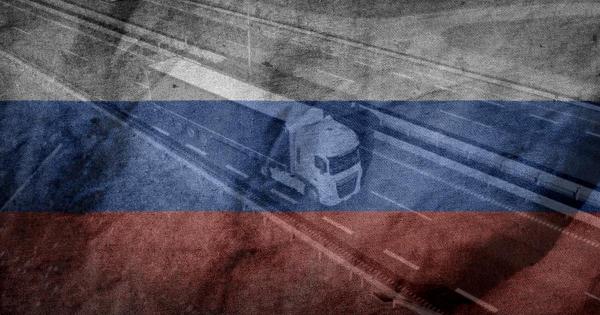
What EU goods will be allowed to reach Russia?
Russia’s decision to ban EU hauliers, which becomes effective on October 10, is a response to an earlier sanction by the EU against Russian road hauliers, which will not be able to travel across EU countries from April 8.
Nevertheless, goods will continue to be delivered by land from EU countries to end users via Russia. To make it possible, goods will either be moved from foreign vehicles to Russian and Belarusian one or foreign trailers will be hitched to Russian and Belarusian tractors at customs terminals in the border areas of the Pskov, Kaliningrad, Leningrad and Murmansk oblasts, the Republic of Karelia and St. Petersburg.
This arrangement does not apply to the Kaliningrad Oblast in the case of international road transports originating in foreign countries and with destinations in the Kaliningrad District and in the opposite direction.
Foreign vehicles will still be able to pass through the territory of Russia to deliver goods to their destinations if their transshipment could negatively affect their quality or if it is not technically possible to reload them. This applies in particular to perishable goods, pharmaceutical and medical products and others of this kind.
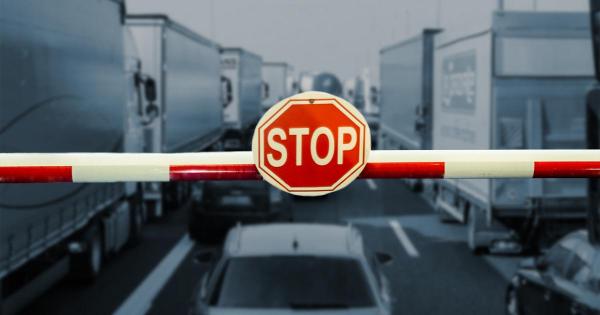
The Czechs are extending border checks
Border controls temporarily introduced on September 29, will remain in effect until October 28.
The measure was originally introduced for a period of 10 days, i.e. until 8th of October. Since the the border still needs to be protected, the Czech government has decided to continue border checks for another 20 days.
„The increase in migration is dramatic, as the border checks have clearly shown, so it would not make sense to lift them now. At the upcoming meeting of EU ministers of the interior we will also deal with the situation along the Western Balkan route“, said Vít Rakušan, Czech Minister of the Interior.